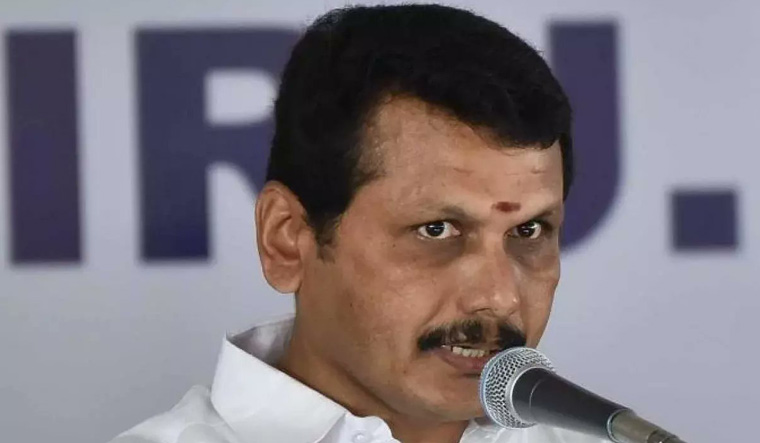The Madras High Court delivered a split verdict in the habeas corpus petition filed by minister Senthil Balaji’s wife Megala on Tuesday. The minister's wife filed a petition against his arrest by the Enforcement Directorate in a money laundering case.
The case will now be heard by a third judge appointed by the Chief Justice of the Madras High Court.
The High Court bench comprising of Justices J. Nisha Banu and Bharatha Chakravarthy said that the matter will be placed before the Chief Justice for further orders. In her order, Justice Nisha Banu observed that the habeas corpus petition is maintainable under the law. Dismissing the petition filed by the ED, seeking to exclude Senthil Balaji’s treatment period while calculating the custodial interrogation period, Justice Nisha Banu said that the ED is not entrusted with the powers to seek police custody under the PMLA.
Justice Bharatha Chakravarthy observed that the habeas corpus petition is not maintainable under the law as the arrest is not shown as illegal and also because the petitioner had not made a case to hold that the remand was illegal. Also, because Senthil Balaji has not been in the custody of the Enforcement Directorate since the day of arrest, he excluded the period of treatment undergone by Balaji in a private hospital while calculating the period of custodial interrogation. Justice Bharatha Chakravarthy ordered that the period from June 14 to the date of his discharge from the hospital has to be excluded from the period of custodial interrogation.
Senthil Balaji’s wife Megala filed a habeas corpus petition in the Madras High Court immediately after he was arrested by the Enforcement Directorate. While Mukul Rohatgi and DMK Rajya Sabha MP and senior counsel N.R. Elango appeared in favour of Megala, Solicitor General Tushar Mehta, Additional Solicitor General A.R.L. Sundaresan and Special Prosecutor N. Ramesh appeared for the Enforcement Directorate.
Mukul Rohatgi and Elango argued that the Enforcement Directorate violated Senthil Balaji’s fundamental and statutory rights under section 41 of CrPC and Article 22 of the constitution. They also said that the habeas corpus is maintainable under law as the remand order passed by the principal sessions court was just procedural.
On the other, Tushar Mehta and others on behalf of the Enforcement Directorate argued that the minister was served with a punchanama, which he refused to accept, and so the contention by his wife that he was not informed about the grounds of arrest is not true. The ED also said that Balaji was informed about the reasons for his arrest by the Sessions judge before passing the remand order.
However soon after the split verdict, the Enforcement Directorate filed a set of appeals in the Supreme Court against the Madras High Court split verdict in the petition. A Supreme Court Division bench comprising Justices Surya Kant and Dipankar Datta requested the Chief Justice of Madras High Court to expedite the decision in the habeas corpus petition filed by Balaji’s wife by placing it before a larger bench. The bench on the other hand refused to heed to the request of the Enforcement Directorate to decide the questions of law involved in the case and asked the agency to wait for the outcome in the Madras High Court on the various petitions pending.



